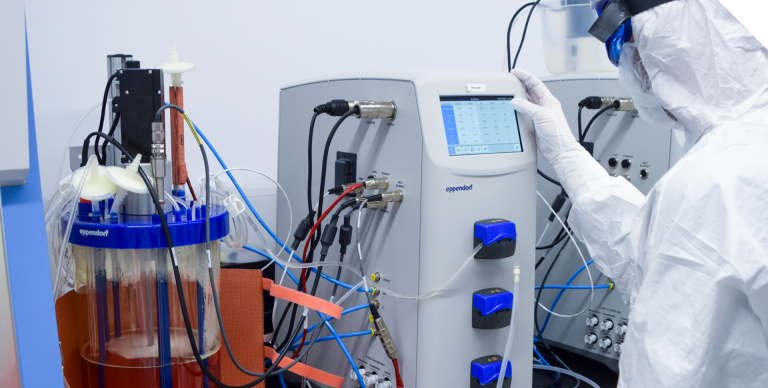G Protein-Coupled Receptors targeted by antibodies raised against three dimensional epitopes
Why target GPCRs with antibodies?
The G Protein-coupled receptor (GPCR) superfamily represents the largest and single most important family of human drug targets. GPCRs play a central role in a plethora of biological processes and are linked to a wide range of therapeutic areas including cancer, diabetes, inflammation, cardiovascular diseases, and chronic pain. Expressed in every type of cell in the body, GPCRs relay signals from outside the cell, across the membrane, to intracellular signaling pathways.
The human genome encodes about 800 GPCRs, over half of these being olfactory or sensory receptors. More so, 370 GPCRs are actual or putative drug targets. Indeed, 20-30% of current prescription drugs modulate this class of proteins. For instance, 6 of the top 10 and 60 of the top 200 best-selling drugs in the US in 2010 target GPCRs. Thus, drugs targeting GPCR continue to generate annual multi-billion dollar sales. This unique antibody development platform has already yielded numerous candidates for the treatment of GI tract infections, inflammation, pain, colorectal cancer and breast cancer. In addition, Immune Biosolutions is actively advancing its new GPCR antibody lead series, as well as raising additional antibodies against relevant targets involved in a wide range of diseases.
Challenges in raising GPCR antibodies
Nevertheless, therapeutic targeting of GPCRs remains challenging, and novel biologics, such as antibodies, have yet to be approved. The discovery of effective therapeutic antibodies has been stymied by the lack of structural and mechanistic knowledge. This in turn, is linked to technical issues regarding GPCR production and purification with the necessity of maintaining native conformation during immunization. Progress has also been hampered by the limited intrinsic ability of current animal models such as rabbits, mice and camelids to produce high affinity antibodies against the highly conserved GPCR orthologs. Considering that antibodies provide higher specificity and lower clearance than small molecules, because of such critical issues, there is a scarcity of antibodies against GPCRs in the pre-clinical and clinical pipelines.
How can GPCRs be targeted?
Immune Biosolutions in collaboration with researchers from Université de Sherbrooke, has developed a new approach to therapeutic and diagnostic antibody discovery that tackles traditionally difficult targets such as GPCRs, integrins and ion channels. Fundamental limitations in commonly used strategies in antibody development for GPCRs and other membrane proteins which have repeatedly failed to deliver effective immunotherapies are now overcome with the proprietary Nebula platform.
Key features of the Nebula platform
Incremental custom antibody development platform.
1- Proprietary design algorithm and synthesis of 3D-constrained peptides mimicking the target’s spatial conformation: For GPCRs, the peptides match the sequence and structure of extracellular loops (ECL). This allows to overcome immunization issues related to membrane-spanning GPCR expression and purification.
2- Incremental chicken antibody generation: Antibodies are selected upon their ability to discriminate between self and non-self. And as mammalian proteins are conserved, their homology may be too high to trigger an immune response in mammalian hosts. Such issues are circumvented by the Nebula platform which taps into unexplored chicken repertoire and provides a new source of antibodies for discovery and human therapeutics.
3- High-throughput selection and validation strategies with phage-display technologies: The best recombinant antibody candidates are identified and isolated in order to evaluate their functional and therapeutic potential.
In short, the Nebula antibody platform enables a targeted shotgun approach relying on three-dimensional peptide design algorithms with phage-display selection strategies. At the core of the platform, is the chicken immune system which provides an untapped antibody repertoire. Chicken IgY antibodies are particularly effective when targeting highly conserved mammalian proteins such as GPCRs. These novel antibodies can be identified and fully humanized via the Nebula platform.
Targeting GPCRs with antibodies
Continually building on lessons learned with multiple GPCR targets, Immune Biosolutions through its Nebula platform can accelerate the discovery of novel antibody candidates for diagnostics and immunotherapy. Development of Immune Biosolutions’ Nebula antibody discovery platform was pioneered in 2012 by a team of young and innovative scientists. To accelerate the generation and identification of promising new antibody candidates, company co-founders Drs Frédéric Leduc, Simon Gaudreau and Jean-François Larrivée tuned the platform into a robust therapeutic discovery engine integrating several unique technologies:
- Antigen design algorithms
- Three dimensional peptides
- Proprietary immunostimulating adjuvants
- Polyclonal IgY antibody purification
- Recombinant chicken antibody technology
Integrated in the Nebula platform, these technologies resolve current technical and scientific bottlenecks traditionally associated with generating GPCR-targeting antibodies. Go to case study.
Addressing critical needs in the GPCR field
Diseases related to the GPCR superfamily represent one of the largest global healthcare challenges and therefore one of the greatest medical needs. By 2018, revenues associated with GPCR therapeutic targeting are expected to exceed 110B$, and in the last decade, the emergence of biologics has yielded new diagnostics and treatment alternatives, and has provided better healthcare to millions of people worldwide. Immune Biosolutions is pioneering a new approach in design and discovery of therapeutic and diagnostic antibodies. These can serve for detection and modulation of GPCR superfamily members as well as other membrane proteins. The Nebula antibody development platform enables discovery of therapies for a wide range of disease by tackling the root causes, as well as by addressing the symptoms. The antibody candidates may be used as drugs and antibody-drug conjugates (ADC) with oral or intravenous administration, or as in vivo and ex vivo diagnostic tools. Immune Biosolutions is currently intensifying efforts on GI tract diseases and infections, oncology and pain/inflammation management, with future applications across multiple additional GPCR-related diseases.All with the promise of improving research and global health.
Recombinant antibodies too
Immune Biosolutions specializes in chicken antibody traditionally offered as polyclonal, but also in recombinant form. They’re both great with any target including GPCRs. We can make antibodies to your dream target.

